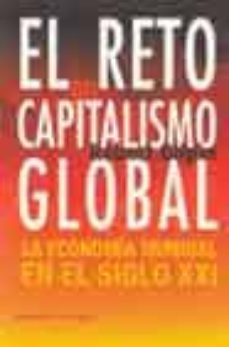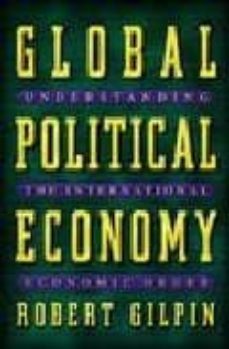Imprescindibles
Ficción
No Ficción
Ciencias y tecnología Biología Ciencias Ciencias naturales Divulgación científica Informática Ingeniería Matemáticas Medicina Salud y dietas Filología Biblioteconomía Estudios filológicos Estudios lingüísticos Estudios literarios Historia y crítica de la Literatura
Humanidades Autoayuda y espiritualidad Ciencias humanas Derecho Economía y Empresa Psicología y Pedagogía Filosofía Sociología Historia Arqueología Biografías Historia de España Historia Universal Historia por países
Infantil
Juvenil
#Jóvenes lectores Narrativa juvenil Clásicos adaptados Libros Wattpad Libros Booktok Libros de influencers Libros de Youtubers Libros Spicy Juveniles Libros LGTBIQ+ Temas sociales Libros ciencia ficción Libros de acción y aventura Cómic y manga juvenil Cómic juvenil Manga Shonen Manga Shojo Autores destacados Jennifer L. Armentrout Eloy Moreno Nerea Llanes Hannah Nicole Maehrer
Libros de fantasía Cozy Fantasy Dark academia Hadas y Fae Romantasy Royal Fantasy Urban Fantasy Vampiros y hombres lobo Otros Misterio y terror Cozy mistery Policiaca Spooky Terror Thriller y suspense Otros
Libros románticos y de amor Dark Romance Clean Romance Cowboy Romance Mafia y amor Romance dramatico Romcom libros Sport Romance Otros Clichés Enemies to Lovers Friends to Lovers Hermanastros Slow Burn Fake Dating Triángulo amoroso
Cómic y manga
Novela gráfica Novela gráfica americana Novela gráfica europea Novela gráfica de otros países Personajes, series y sagas Series y sagas Star Wars Superhéroes Cómics DC Cómics Marvel Cómics otros superhéroes Cómics Valiant
eBooks
Literatura Contemporánea Narrativa fantástica Novela de ciencia ficción Novela de terror Novela histórica Novela negra Novela romántica y erótica Juvenil Más de 13 años Más de 15 años Infantil eBooks infantiles
Humanidades Autoayuda y espiritualidad Ciencias humanas Economía y Empresa Psicología y Pedagogía Filosofía Historia Historia de España Historia Universal Arte Cine Música Historia del arte
Ciencia y tecnología Ciencias naturales Divulgación científica Medicina Salud y dietas Filología Estudios lingüísticos Estudios literarios Historia y crítica de la Literatura Estilo de vida Cocina Guías de viaje Ocio y deportes
ROBERT GILPIN
Recibe novedades de ROBERT GILPIN directamente en tu email
Filtros
Del 1 al 2 de 2
TURNER 9788475065601
Las revueltas y manifestaciones que han rodeado las últimas cumbres mundiales sobre economía demuestran que el capitalismo global se enfrenta a grandes desafíos en un futuro próximo. ¿Realizarán los países socialistas con éxito la transición a la economía de mercado? ¿Qué papel jugará China en la economía del futuro? ¿Continuarán los Estados Unidos ejerciendo el liderazgo mundial?. Este libro explora las posibles respuestas a estas preguntas; se adentra en problemas como la liberalización del comercio, las grandes corporaciones o los flujos desestabilizadores de capital, y mantiene que el capitalismo global y la internacionalización de la economía deben contar con sólidos cimientos políticos. El reto del capitalismo global describe los riesgos y oportunidades inherentes a la globalización con la claridad y profundidad del experto en relaciones internacionales Robert Gilpin. Su exposición proporciona el contrapunto al excesivo triunfalismo que ha caracterizado el pensamiento norteamericano de finales del siglo XX.
Ver más
Tapa dura
PRINCETON UNIVERSITY PRESS 9780691086774
"Robert Gilpin, the dean of American students of international political economy, has provided us with a masterful guide to the state of the world economy and how it can be explained. Current developments are placed in historical and theoretical perspective. In a book that is deeply thought as well as deeply researched and carefully argued, Gilpin has produced a landmark study."--Robert Jervis, Columbia University ""Global Political Economy" undertakes a comprehensive survey of major aspects of the world political economy from the perspective of a leading 'realist' political scientist. Robert Gilpin emphasizes the continuing importance of the state and the great impact of variations in state structure and policy around the world. His book is an impressive attempt to synthesize economic and political analysis to understand the forces affecting globalization, state policy, and the results of their interaction for economic development and international trade, investment, and finance."--Robert O. Keohane, Duke University This book is the eagerly awaited successor to Robert Gilpin's 1987 "The Political Economy of International Relations," the classic statement of the field of international political economy that continues to command the attention of students, researchers, and policymakers. The world economy and political system have changed dramatically since the 1987 book was published. The end of the Cold War has unleashed new economic and political forces, and new regionalisms have emerged. Computing power is increasingly an impetus to the world economy, and technological developments have changed and are changing almost every aspect of contemporary economic affairs. Gilpin's "Global Political Economy" considers each of these developments. Reflecting a lifetime of scholarship, it offers a masterful survey of the approaches that have been used to understand international economic relations and the problems faced in the new economy. Gilpin focuses on the powerful economic, political, and technological forces that have transformed the world. He gives particular attention to economic globalization, its real and alleged implications for economic affairs, and the degree to which its nature, extent, and significance have been exaggerated and mi
Ver más
Tapa blanda
Del 1 al 2 de 2

























